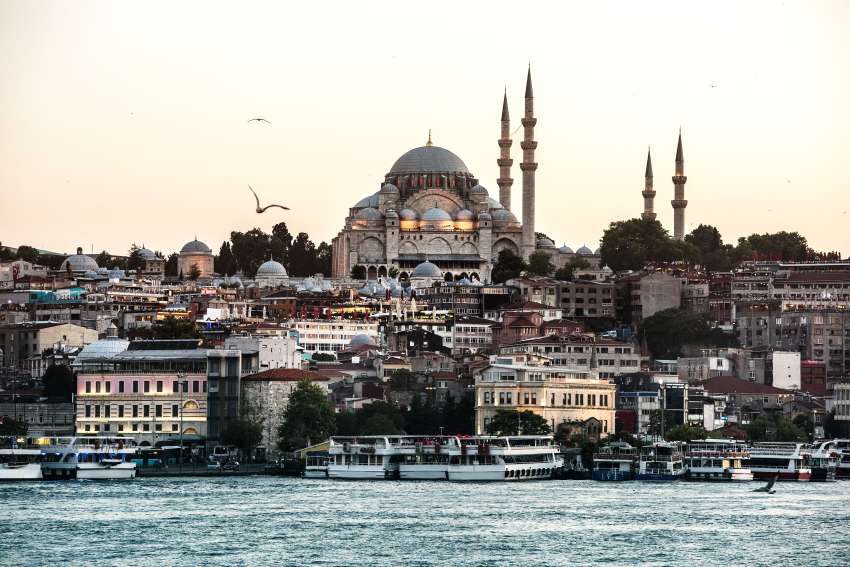Published on
August 17, 2025
The medical tourism scene in Turkey is quietly centring on one unusually polarising service: surgery to lengthen men’s legs. The trend is fuelled by lower costs, cutting-edge tech, and positive government policies. Clinics like Wanna Be Taller in Istanbul now draw male clients from every corner of the globe, promising to boost their height by as much as nine centimetres. Surgeons here blend proven methods with carefully calibrated rehabilitation. What began as a niche offering now feeds into a broader rush of foreigners choosing Turkey for anything from teeth implants to full-body makeovers. With millions of patients already arriving, the scene is changing fast.
How the Procedure Is Performed
The process itself is not simple, and it has been performed with high levels of discomfort. The surgery is typically carried out by breaking the leg bones and inserting internal or external devices that gradually pull the bones apart. Over time, new bone tissue is formed in the gap, increasing overall leg length. Technologies such as the Ilizarov external fixator, LON (Lengthening Over Nail), and the Precice 2 internal magnetic nail have been widely utilised in Turkish clinics. Patients are often required to make daily adjustments themselves to ensure the proper pace of growth. The surgeries are followed by intensive physiotherapy and months of restricted mobility, making the recovery phase nearly as challenging as the operation itself.
The Attraction of Turkey
Turkey’s appeal in this field has been established through several key factors. The costs of treatment in Istanbul, Ankara, or Antalya have been significantly lower than those in the United States or Western Europe. While a procedure in America may reach as high as USD 250,000, a similar surgery in Turkey is often priced between USD 15,000 and USD 35,000. This financial difference has drawn patients from the UK, the Middle East, and Asia, many of whom seek treatment packages that include accommodation, translation services, and airport transfers. The availability of such comprehensive medical tourism packages has made Turkey especially appealing to solo travellers and international patients unfamiliar with local systems.
Government Involvement and Infrastructure
The rise of Turkey’s health tourism sector has not occurred by chance. The Turkish Ministry of Health established USHAS (International Health Services) in 2019 to regulate and promote healthcare services abroad. Turkey’s extensive healthcare reforms, carried out over the past two decades, have also strengthened infrastructure by modernising hospitals and training medical staff. According to the Turkish government, over 1.8 million foreign health tourists were welcomed in 2023, and revenue from medical tourism exceeded USD 3 billion. This organised approach has made Turkey one of the leading destinations globally for medical travel.
Risks and Complications
Despite the enthusiasm surrounding height enhancement, serious risks have been documented. Post-surgical complications such as infections, blood clots, nerve damage, and chronic pain have been recorded in case studies. In some instances, patients have required secondary surgeries or emergency treatments after returning home. A report published in the National Library of Medicine detailed examples where follow-up care was needed abroad due to infections and delayed bone healing. In extreme cases, fatalities have occurred, raising concerns about the safety of procedures when patients are discharged too early or receive insufficient aftercare.
The recovery period has been described as arduous. Patients often must rely on crutches or wheelchairs for months, perform daily stretching, and endure significant pain. Mental health challenges are also common since isolation and slow progress can contribute to frustration and depression. For many, however, the psychological reward of added height has been considered worth the sacrifice, especially in societies where height is strongly linked to confidence, status, and perceived attractiveness.
Cultural and Psychological Motivations
The motivation behind the pursuit of leg lengthening has often been rooted in personal insecurity and societal expectations. Many male patients have been reported to struggle with feelings of inadequacy due to their height. Turkey’s clinics have provided not only surgical solutions but also psychological support services, recognising that the procedure’s appeal lies as much in its emotional promise as in its physical results. By marketing these services to international audiences, clinics have tapped into a growing demand for cosmetic transformation that goes beyond conventional aesthetics like hair or teeth.
Turkey’s Position in Global Medical Tourism
Turkey’s role in height enhancement tourism has been reinforced by its broader standing as a medical tourism hub. Alongside hair transplants in Istanbul and dental veneers in Antalya, leg lengthening has been added to the list of services for which Turkey has gained recognition. The country was recorded among the top 10 global tourism destinations in 2024, welcoming over 52 million international visitors. Health tourism was identified as a key segment of this influx, encouraged by government incentives and competitive service offerings.
Considerations for Travelers
For those who may consider travelling to Turkey for leg lengthening, caution is essential. It has been advised by experts and government agencies that proper research into clinic licensing, surgeon credentials, and aftercare arrangements should be carried out before any commitments are made. Patients are recommended to verify clinics through the Turkish Ministry of Health and USHAS platforms to ensure compliance with official regulations. It has also been advised that long-term physiotherapy plans be secured before returning home, as incomplete rehabilitation may lead to lifelong complications.
Conclusion
Turkey has become one of the top places for men seeking leg lengthening because treatments are affordable, clinics use advanced technology, and there’s strong backing from government agencies. Although the surgery is difficult, carries significant risks, and sparks ethical debate, more people are choosing it each year. With the global limb lengthening market nearing the billion-dollar mark, Turkish hospitals are likely to welcome growing numbers of overseas patients. Anyone considering this option should travel with clear, realistic goals, a thorough grasp of the dangers involved, and an understanding that gaining inches comes with steep financial and physical sacrifices.
